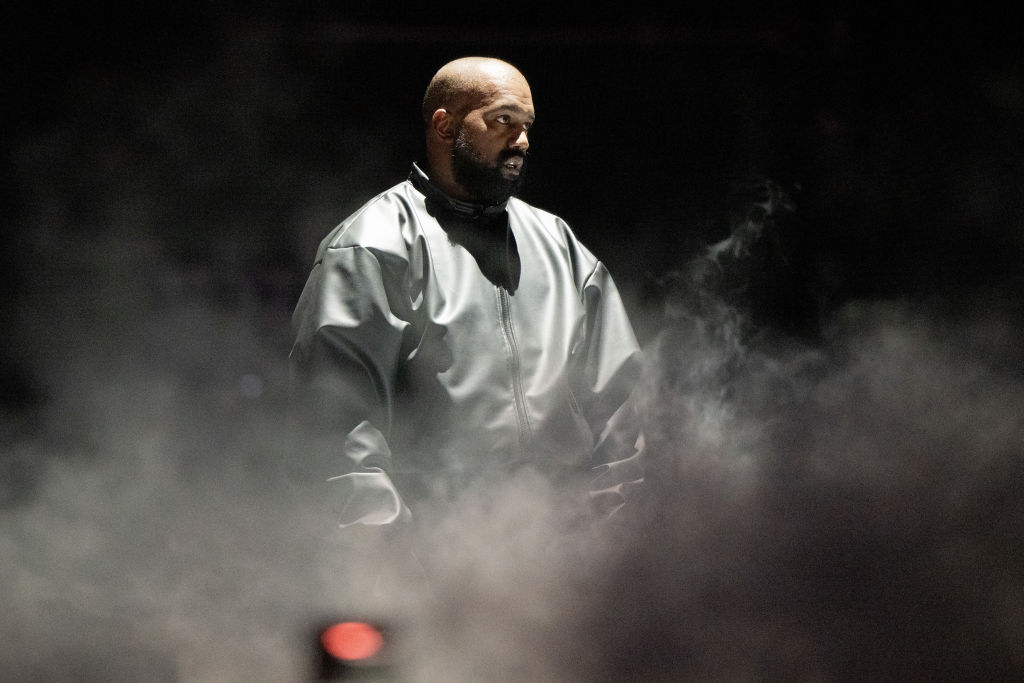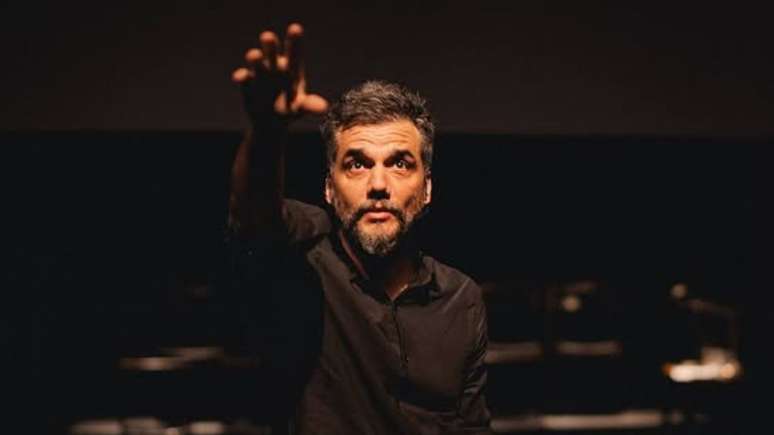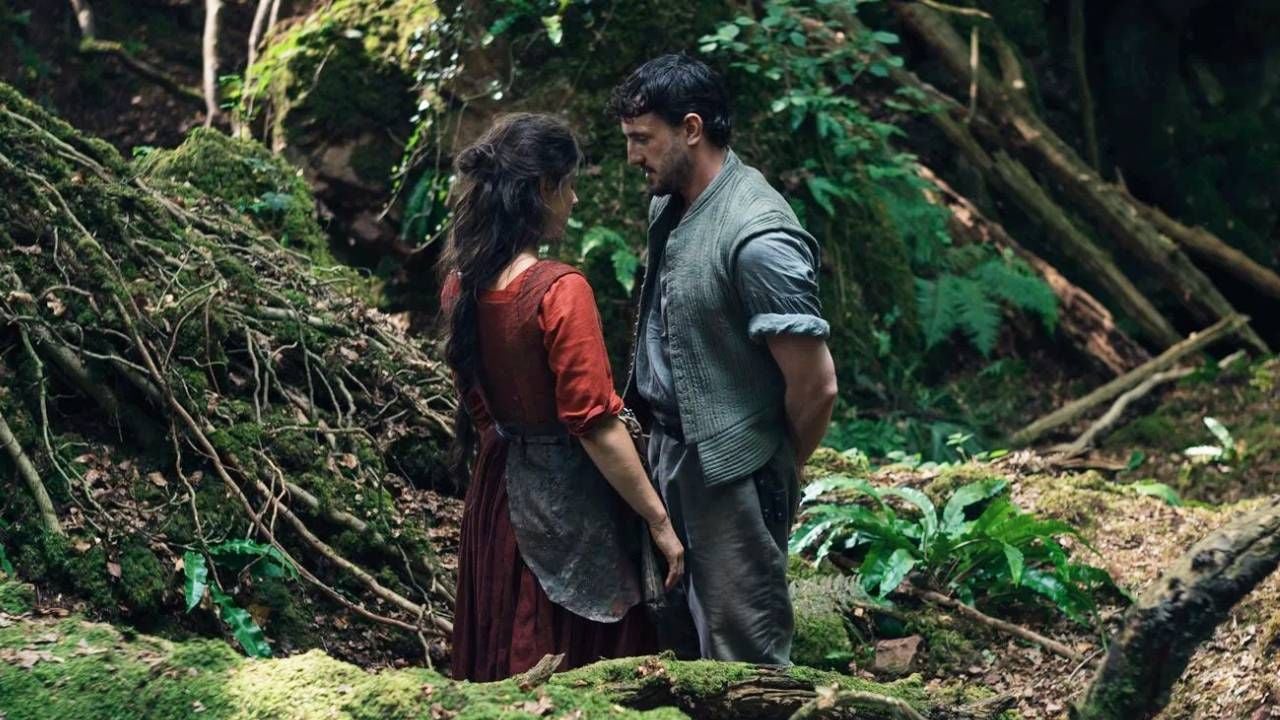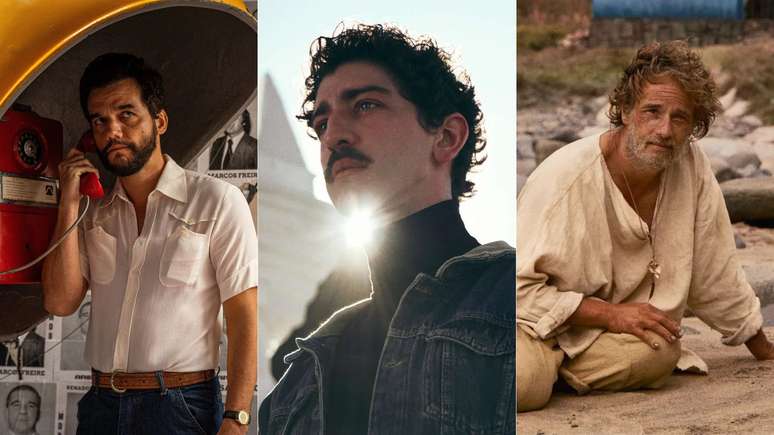The great story of Souleymane
We write a masterpiece and the word is heavy. Because when we get to “French” cinema, which we – and which – struggles to fit into the social genre and the “auteur” genre, often committing the sin of arrogance, wretchedness and condescension, then the dazzling Souleymane’s story it has no competition. Neither this year nor in recent years.
What Boris Lojkine’s new film says next Hope in 2015 and Camilla in 2019? Souleymane’s storyas the title indicates, it tells the story in Paris of a young man, Souleymane (Abou Sangare), a Guinean migrant who has to take his interview at the Ofpra (French Office for the Protection of Refugees and Stateless Persons) in 48 hours with a in view of obtaining political asylum. To this end he needs documents, he also needs advice from other migrants, regularized and otherwise. And he needs money. To get those documents, to get those tips and just to survive. Like many others, he then delivers meals by bicycle for the UberEats service, via an account that he “rentes” from its real owner.
A reversed point of view
Boris Lojkine’s camera, shoulder-mounted and supported – without comfort – only in the rare moments of respite in this exceptional thriller, remains glued to Souleymane. While the director had explored Southeast Asia in his documentaries and then the African continent in his first two fiction films, this time Paris is the territory. The director manages a inversion : from Souleymane’s point of view, Paris is a foreign country, an urban chaos whose codes he must grasp.
As photojournalist Camille did in the Central African Republic Camillathis character must advance blindly, find dangerous roads, understand a language which, in addition to not being his, has no patience with him: he is just a delivery boy, an invisible person, even a pest. He is a man abroad. And the foreigners in the film, in this unknown territory, are the “regulars”, they are the Parisians. We are the stranger.
History is not what you think
Souleymane must find allies to complete his task and pray that the police officers he delivers an order to aren’t overzealous when they notice his plight. He falls, hit by a car, but gets up immediately. Nothing should stop him, any slowdown is potentially fatal and any interaction that continues would not develop in his favor. He climbs the many floors of customers who refuse to get off, pedals and runs so as not to lose his RE, or jumps on the only 115 bus that will take him to a center where he can wash and sleep a few hours before starting the journey again the same day .
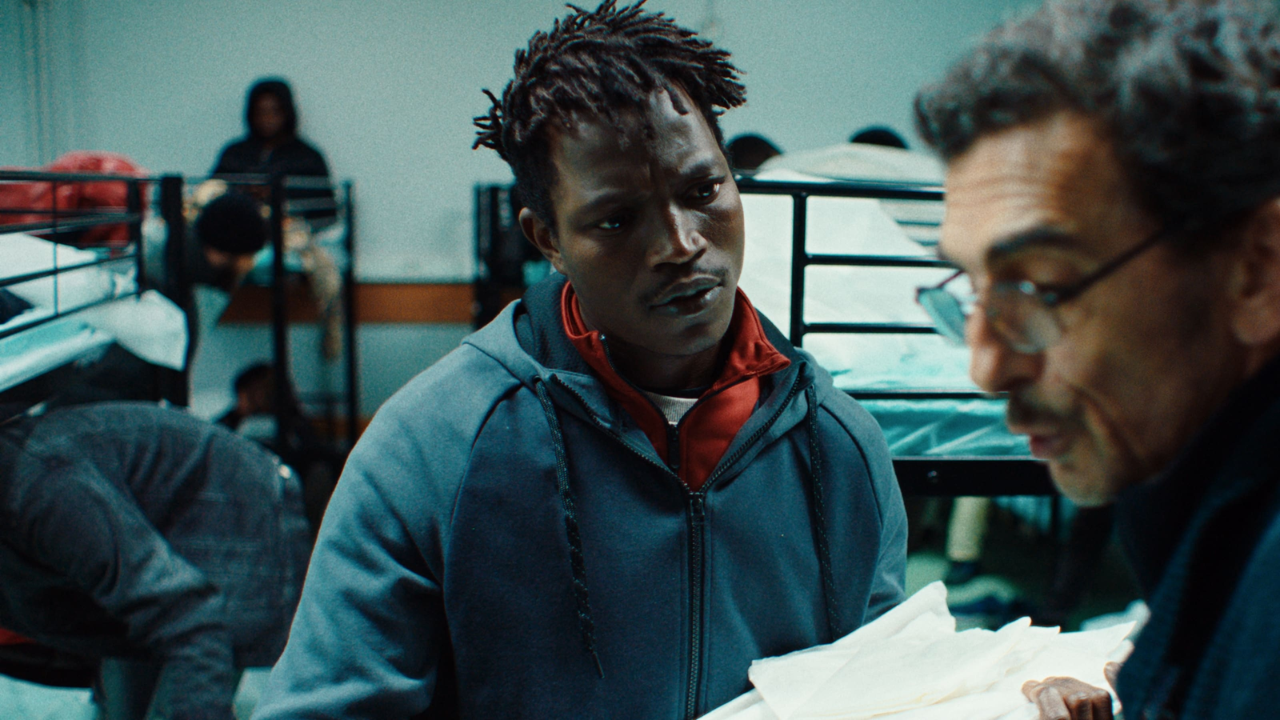
Souleymane has only one goal: know and tell your story. This story that will allow him to obtain political asylum, the story that makes him a political opponent forced to flee from the regime of his native country. But is this story true? Souleymane’s story it is therefore not just the story of this man in Paris. It is also and above all the story that he will have to tell to the OFPRA agent who will interview him, a story that will determine his entire future life.
A thriller that would make its genre green with envy
You remember the sequence in Waterloo station from Revenge on the skinfilmed in a small crew with Matt Damon in a real crowd? Its urgency, its editing, this feeling of frantic racing in all directions? The second opening sequence of Souleymane’s story – the first is a flashforward -, during which we discover that Souleymane, thrown on a bicycle through the congested streets of Barbès, does even better. How was this extraordinarily effective sequence, and many others, achieved? How can there be so much life, energy, chaos and reality in a fiction film whose budget doesn’t have to be much more than just catering a Jason Bourne film?
Souleymane’s storyformally, it is a breathtaking thriller crisis. A constant drama whose action never stops. But: no antagonist, no melodrama, no weapons, no violence – except that of the social situation -, just a man alone faced with his destiny. Boris Lojkine’s film is reminiscent of another, excellent one Full time by Éric Gravel, released in 2021, with Laure Calamy as a single mother dealing with a hellish schedule and a hiring prospect that will save her, or doom her. Stunning social thriller awarded in the parallel section at the 2021 Venice Film Festival, Full timewith all the respect and admiration rightly due to it, now appears only as the spectacular outline of the idea that Souleymane’s story translated into a work of total cinema.
An exceptional film
An exceptional job, especially because there is a counterintuitive approach. A film whose radical purity removes all the skin and fat that separates the finger from the muscle and nerve it wants to touch.
When Laure Calamy’s character in Éric Gravel’s film has a career to resume and children to feed, Souleymane has nothing to preserve or regain except his right to exist. When Irène Drésel’s magnificent composition for Full time (César 2022 for best music) increased the tension of the film, there is no extradiegetic music Souleymane’s story. A choice with a double effect: on the one hand making the city the soundtrack of the film, on the other rejecting it deus ex machina emotional which is the musical instrument, rejecting the artifice of fiction. Souleymane’s story it’s not a documentary, yet no fiction film has ever seemed as naked, realistic and believable as this one.

Souleymane’s story it makes you cry, literally, because the emotion and intelligence of his treatment of his subject are unstoppable. Because the performance of Abou Sangare, a non-professional actor with a background similar to that of his character, is exceptional and will never be equaled. But also because everything that appears very familiar (the streets of northern Paris, the migration issue, smartphone applications, delivery drivers) is no longer so. The spectator is Souleymane’s client as much as he is Souleymane, and this cinematic performance in which we are as much foreigners as non-foreigners, in which we lose orientation in a place that is nevertheless well known, this physiologically unique performance offers sensations and emotions of a powerful unprecedented and unprecedented.
This emotion delivered by Souleymane’s story culminates in a monumental final sequence. In front of the OFPRA agent, played to perfection by the film’s only professional actress, Nina Meurisse, who played Camille Lepage in CamillaSouleymane finally tells his story. She basically tells him two things: “take your time” and “tell the truth.” In this very critical moment for Souleymane, he has, paradoxically, a demonstration of simple solidarity and humanity, someone who offers him the opportunity for a full existence. The dialogue that follows is of overwhelming beauty, harshness, truth and rarity.
When the thriller transcends the gaze
Boris Lojkine contemplate not his topic. There is no ledge, there isn’t omniscience of writing that allows us to build a moral edifice in which we see who would be right and who would be wrong. Nor is there the condescending German-Pratin or unconsciously racist distance that often poisons the social film genre. There is nothing but Souleymane and the story he is trying to build.

This formidable immediacy and this absence of distance occurs through the use of thriller codes Souleymane’s story achieves this goal. But this once again goes against intuition. In fact, everything tends to make us believe that we are watching a film with characters, a film character driven -, and this is what we witness, clinging to Souleymane. But this story is entirely motivated, set in motion, by the narrative structure of the thriller – a film Plot driven -. And it’s not a subtle balance found by Boris Lojkine: it’s the total fusion of these two approaches to cinema, because the crisis of the thriller is exactly crisis of Souleymane’s character. The character is just action, in a story that is also just action. THE’history by Souleymane is double, yet it is only one… If it never is, then it is very rarely seen.
Yep, in 2019, Camilla had confirmed the birth of a filmmaker with a precious gaze and method. But this would seem almost little considering what is proposed Souleymane’s storyfor which words are lacking. Because cinema doesn’t say, it shows, and the more beautiful it is, the less it can be said. So, what can we say about Abou Sangare’s performance?
A miraculous performance
How phenomenal. Yet the camera does not film him differently from the other silhouettes, the photography remains the same, and there is no artifice put in place to make him taller, more beautiful, more charismatic, more real than he is natural. Awarded with the Best Actor Award in the Un certain Regard section at the 2024 Cannes Film Festival, Abou Sangare would have won it, without any dispute, even in the official competition. Where Souleymane’s story he very much deserved to be selected.
Abou Sangare, who after seven years in France and three requests for regularization still finds himself in the situation, is not a delivery boy in real life but a mechanic in Amiens. Whatever happens, whatever awards she has already had and will still have, she will never be the star of the red carpets and will not appear in big productions where the professionals are legion. Yet, at 23, he is the very definition of movie star. Like Léa Seydoux, her silences speak a thousand times better and longer than any invective. Like Benoît Magimel, his gaze and stature tell a story we would never know Say but which we all know, even without having experienced it. What else can we say other than that Abou Sangare is a miracle, in a miracle film?
More than any political impulse, more than any insight from any story performativemore than anything, Souleymane’s story achieves in 1 hour and 33 minutes what would otherwise be necessary to dedicate decades and entire lifetimes of work: freeing everyone from their ordinary humiliation and their usual cynicism to bring to light the indefectible humanity that binds us and will save us all.
Souleymane’s story by Boris Lojkine, in theaters from October 9, 2024. Above is the trailer.
Source: Cine Serie
Ray Ortiz is a journalist at Gossipify, known for his coverage of trending news and current events. He is committed to providing readers with accurate and unbiased reporting, and is respected for his ability to keep readers informed on the latest news and issues.


